Polish President Duda said Prime Minister Morawiecki's comments about stopping arms transfers to Ukraine had been misinterpreted, as relations between the two countries were strained.
"The words of Prime Minister Mateusz Morawiecki have been interpreted in the worst possible way. In my opinion, the Prime Minister meant that we will not transfer to Ukraine the new weapons that we are buying to modernize the Polish army," Polish President Andrzej Duda said on September 21.
Poland has been one of Ukraine's staunchest supporters since the conflict began in February 2022 and is one of Kiev's main arms suppliers. It has supplied Ukraine with T-72 tanks, armored vehicles, artillery and other weapons.
Prime Minister Mateusz Morawiecki said on September 20 that Poland would stop providing arms to Ukraine to focus on building its defense, amid escalating tensions between the two countries over agricultural exports. Polish government spokesman Piotr Muller later said that Poland would continue to deliver weapons and ammunition under agreements reached, including contracts signed with Ukraine.
Poland has signed several arms deals, including with the United States and South Korea, from which it has ordered K2 "Black Panther" tanks and K9 howitzers to modernize its army.
"When we receive new weapons from the United States and South Korea, we will transfer the type of weapons that are being used by the Polish army. Perhaps we will transfer it to Ukraine," President Duda stressed.
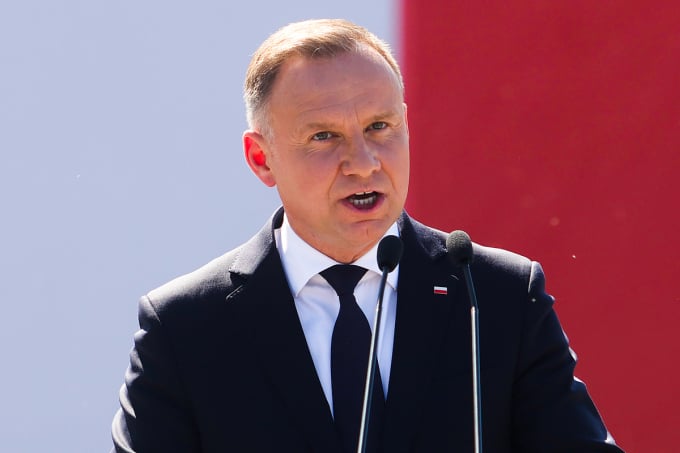
Polish President Andrzej Duda speaks during a military parade in Warsaw on August 15. Photo: AFP
In addition to sending its own arms supplies, Poland is also an important transit country for weapons sent to Ukraine by the United States and other Western countries. Poland has also taken in about a million Ukrainian refugees since the start of the war.
Relations between Warsaw and Kiev have been strained since Poland unilaterally maintained a ban on Ukrainian grain imports last week, despite the European Commission announcing the end of the ban imposed in May. Hungary and Slovakia also protested the European Commission's decision.
Ukraine responded by filing a complaint with the World Trade Organization (WTO) against Poland, Hungary and Slovakia. Kiev also warned it could impose a ban on fruit and vegetable imports from Poland.
The grain issue is particularly sensitive in Poland, which is preparing for a general election next month, with the ruling Law and Justice party enjoying strong support among rural voters.
“We are the first to do a lot for Ukraine and that is why we expect them to understand our interests,” Mr. Morawiecki said on September 20. “Of course we respect all their problems, but for us, the interests of farmers are the most important.”
Ukraine said on September 21 it would hold talks with Poland on grain "in the coming days" and stressed the two countries still had "close" relations.
Huyen Le (According to AFP )
Source link




![[Photo] Students of Binh Minh Primary School enjoy the full moon festival, receiving the joys of childhood](https://vphoto.vietnam.vn/thumb/1200x675/vietnam/resource/IMAGE/2025/10/3/8cf8abef22fe4471be400a818912cb85)

![[Photo] Prime Minister Pham Minh Chinh chairs meeting to deploy overcoming consequences of storm No. 10](https://vphoto.vietnam.vn/thumb/1200x675/vietnam/resource/IMAGE/2025/10/3/544f420dcc844463898fcbef46247d16)

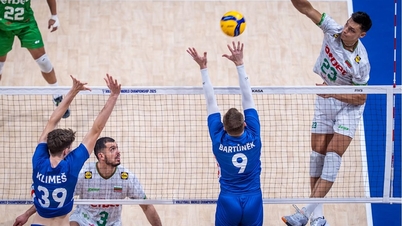

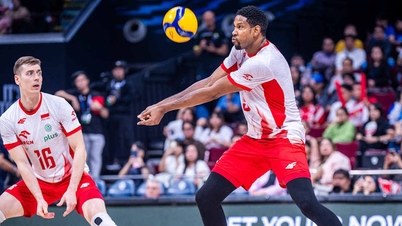



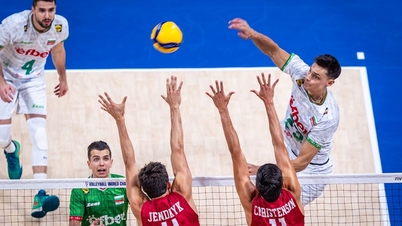

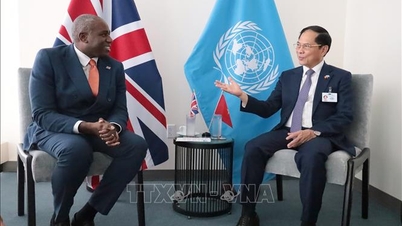

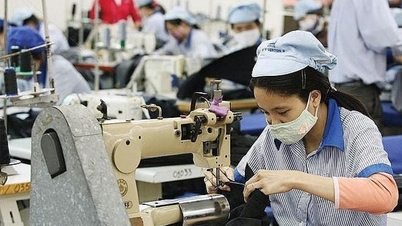


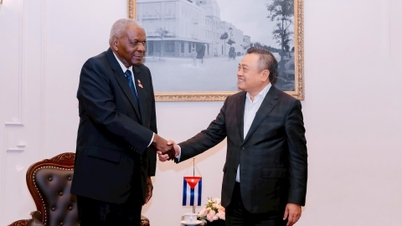
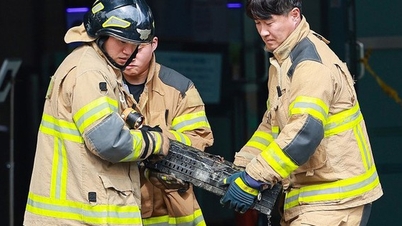

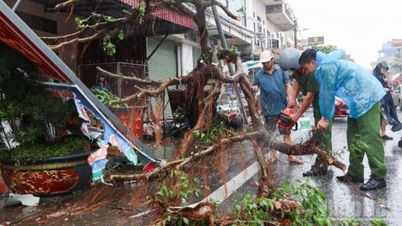




























































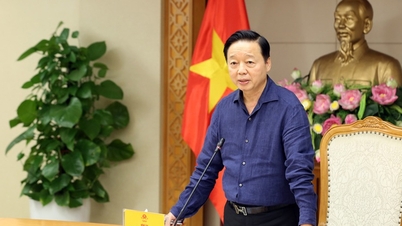



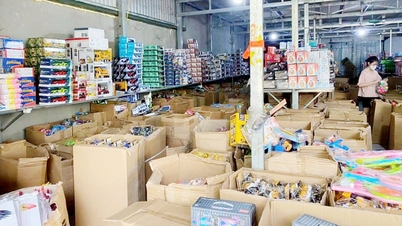


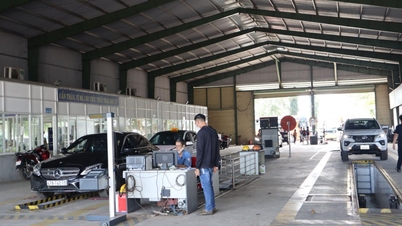

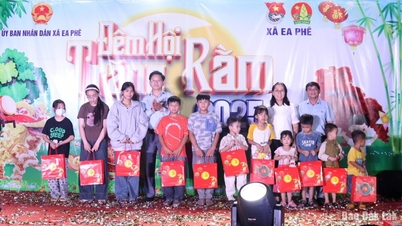











Comment (0)